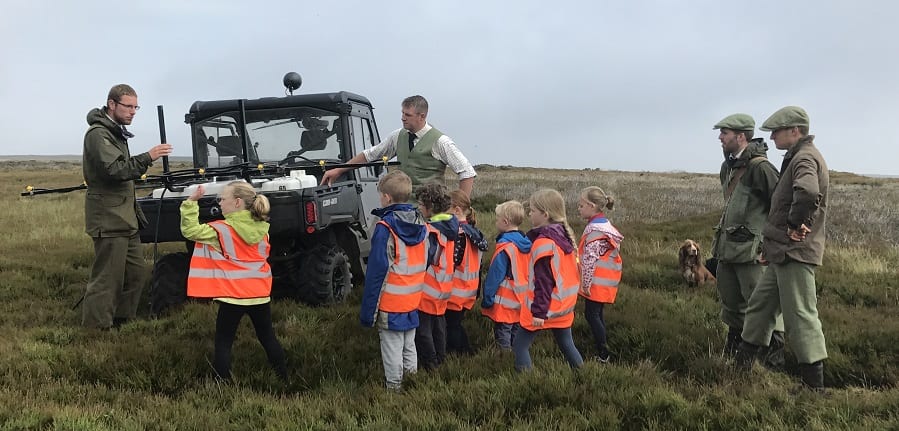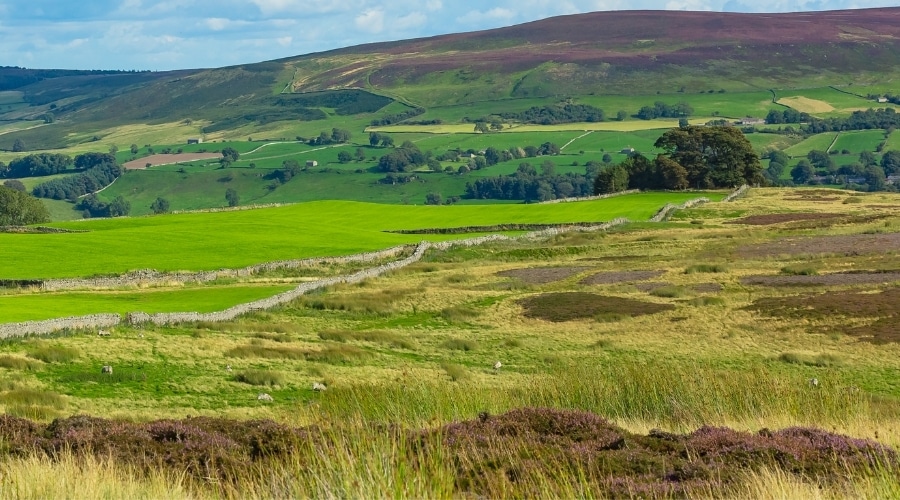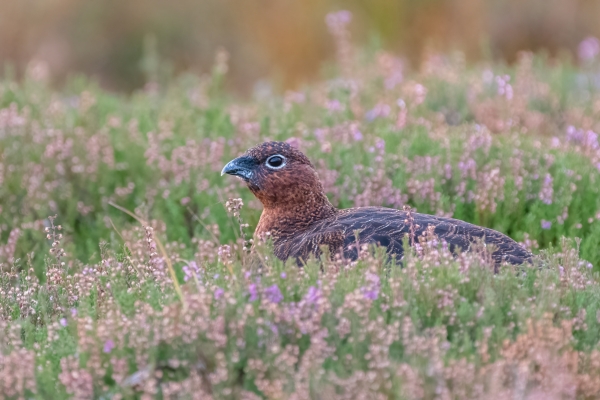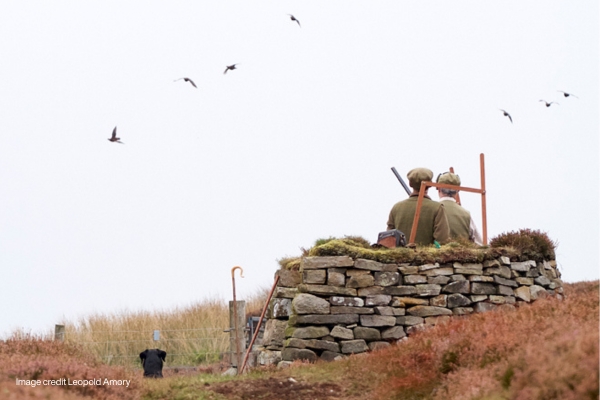
Let’s Learn Moor: The UK’s Largest Upland Classroom Returns
Let’s Learn Moor 2021 set to educate and inspire thousands of primary school children from across the UK about our upland habitats.
Get information on the legal shooting season for mammals and birds in the UK.
Apply for funding for your project or make a donation today
Comprehensive information and advice from our specialist firearms team.
Everything you need to know about shotgun, rifle and airgun ammunition.
Find our up-to-date information, advice and links to government resources.
Everything you need to know on firearms law and licensing.
All the latest news and advice on general licences and how they affect you.

The Glorious Twelfth is without question an iconic date in the game shooting calendar.
However, with exchanges of opinion often flying around faster than the grouse themselves, deciphering the facts from the fiction can be challenging.
We’ve taken 12 myths commonly voiced about grouse shooting and moorland management and outlined the truths that dispel them.
Truth: Grouse moors are incredibly important wildlife havens.
Moors managed by gamekeepers support up to five-times more threatened wading birds, including the globally-threatened iconic curlew.
A study of upland breeding birds in parts of England and Scotland found that densities of golden plover and lapwing were up to were up to five-times greater on managed grouse moors compared to unmanaged moorland. Curlew doubled in number on managed moorland, with redshank also found to be more abundant.
Truth: Extreme weather conditions cause flooding, not grouse moor management.
Far from seeking to create drier moors, managers appreciate that when it comes to grouse moors “wetter is better”.
Flooding can be inhibited by techniques such as blocking historical drainage ditches, restoring areas of bare peat and reintroducing sphagnum mosses.
Historically, drains – or “grips” – were encouraged across upland moors in the 1960s/70s by government agricultural subsidy payments. However, grouse moor managers have been rewetting moorlandfor decades now and continue to do so.
Truth: Research shows that controlled burning can lock in carbon as charcoal, increase the diversity of carbon-sinking sphagnum moss species, and reduce methane outputs (a climate change contributor) when compared to mowing.
Under the right circumstances, controlled burning can protect peatland and help achieve our net-zero targets.
Truth: Red grouse are truly wild birds that cannot be reared and released. They are only found in the British Isles and are closely associated with heather moorland, as heather is their primary food source.
Land management helps create a habitat where grouse, and many red- and amber-listed species, can live and reproduce.
Each year, the number of red grouse in such areas is counted and shooting only takes place if a sustainable surplus can be taken.
Truth: Hen harriers, and other raptors, are thriving on grouse moors. The habitat and predator control enables them to feed and breed successfully.
Truth: Rewilding initiatives explore the benefits of rewetting, planting trees and addressing the climate emergency and extinction crisis. Many grouse moor managers are already tackling these issues.
The equivalent of more than 33,000 cars’ worth of carbon emissions is being removed from the atmosphere each year due to the environmental work of grouse moor estates in the north of England.
Grouse moors and their surrounding farmland are key to the survival of endangered species, including the iconic curlew, often described as the UK’s most threatened bird.
Truth: Over the last two years, challenges to lawful shooting-related practices have become more frequent and complex but not necessarily successful.
Many of the legal attacks have backfired, and sadly the countryside and wildlife have suffered as a result.
Weeks without general licences in 2019 allowed countless nests to be destroyed, crops decimated, and livestock attacked. Gulls are no longer on a general licence and are pillaging nests of amber- and red-listed species.
Far from opponents of shooting winning the argument however, a petition calling for a ban on driven grouse shooting was overwhelmingly rejected during a parliamentary debate earlier this year.
BASC’s Fighting Fund enables us to keep challenging these attacks.
Truth: A large number of grouse moors are designated as open-access and the public are free to enjoy the space.
Grouse shooting is underpinned by private investment and requires little taxpayers’ money. Grouse moors, their management and use generate more income for local communities than any other viable alternative.
These landscapes are teeming with life and are home to a diverse range of wildlife.
Truth: Birds are taken home to be prepared and cooked by people involved in the day. Alternatively, they are collected by a licensed game dealer to enter the food chain.
Red grouse is a lean, dark meat that is prized by chefs.
Grouse meat is rich, versatile and very healthy – it contains less than a third of the fat of chicken.
Grouse is often seasonally stocked in supermarkets, butchers and by online food retailers.
Truth: Gamekeepers are human, they have families and are passionate about the countryside. They are invested in the landscape and local community, it is their life, work and home.
Gamekeeping is not a Monday to Friday, 9-5 job and despite working tirelessly they manage to find time to help others too.
Since 2016 North York Moors gamekeepers have raised more than £100k for local charities. Last year Peak District gamekeepers put out over 1,000 wildfires, helping to reduce the need for fire service call-outs.
Despite this, statistics show that almost two-thirds of gamekeepers across the UK have received abuse and threats as a direct result of their profession.
Truth: According to Natural England, 92% of wildfires occur during the spring and summer months – a time when controlled burning is not permitted.
Controlled burning on moorland is only permitted between October and April in the uplands and is tightly regulated by law.
Grouse moor managers are well equipped to manage fires and often help local fire services tackle wildfires on moorland.
Truth: The 12th August is an iconic date which far surpasses being on a moor.
It marks the start of the annualopening of game seasons in the UK and it is an opportunity for an entire community to celebrate their hard work.
In reality, moors will start shooting at different times, for some this will be on 12 August and others much later in the season. This is because grouse management is very site-specific and affected by multiple factors.
Each year, moors count the number of grouse they have and a sustainable surplus calculated. If there are not enough red grouse to take a sustainable surplus, shooting does not take place.
Even when shooting doesn’t occur, the investment in the land, infrastructure and people is still required. On moors managed for grouse this is privately funded.
While there may only be a fraction of people involved in shooting on the Glorious Twelfth, shooters, beaters, pickers up, dogs, local businesses, and keepers will be marking the occasion in recognition of the community as a whole.

Let’s Learn Moor 2021 set to educate and inspire thousands of primary school children from across the UK about our upland habitats.

BASC Scotland is urging members to apply for a grouse moor licence as soon as a dedicated portal opens later this month.

The Westminster Hall debate on 30 June marked a clear and emphatic rejection of the campaign to ban driven grouse shooting.